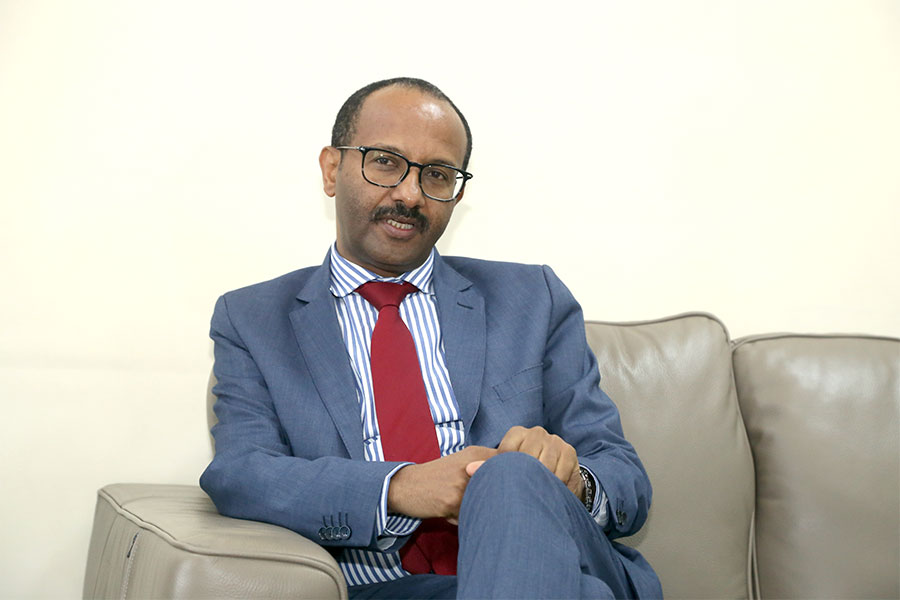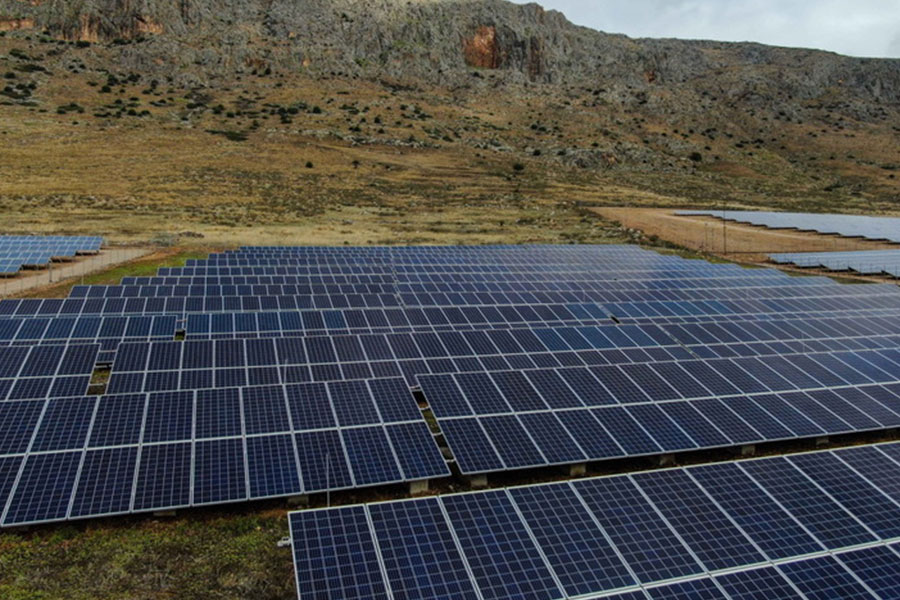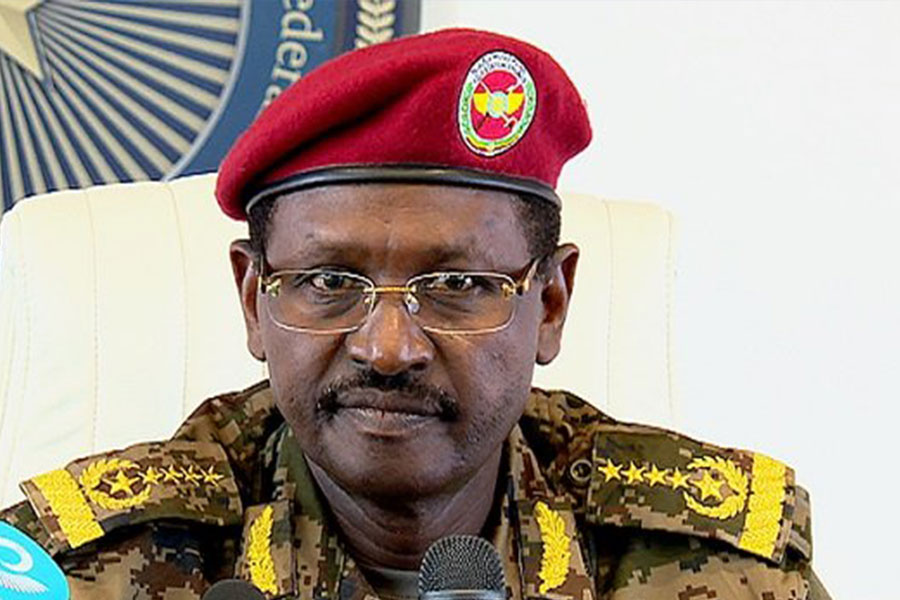
Viewpoints | Jun 07,2025
Aug 17 , 2019
By Tsion Fisseha
Protester dies, scores arrested in Kashmir lockdown. Pellet gun attack victims fighting for their lives. Sudan schoolchildren fired on during protest. Sudan protester ‘shot dead’ as talks stall. Hong Kong protests: Flights suspended, tear gas fired. Yemen’s Houthis launch drone attack on Saudi’s Abha airport. El Paso shooting leaves 22 dead, 24 injured. Ethiopia: At least 17 killed over Sidama autonomy.
These and many more are the types of headlines I wake up to every single day of my life — headlines caused by man-made disasters, claiming the lives of people too many to put in numbers.
The first world war, one of the deadliest conflicts in history, with an estimated nine million combatants and seven million civilian deaths as a direct result of the war, while resulting genocides and the resulting 1918 influenza pandemic caused another 50 to 100 million deaths worldwide.
Contrary to the result that followed the war, the immediate cause was more or less simple. In a nutshell, the war started following the assassination of the Archduke Franz Ferdinand of Austria and his pregnant wife, Sophie.
Having grasped the ongoing tensions among the countries in the world, various media outlets are already predicting time and a place for the third world war.
War and conflict have been a periodic but persistent feature in human history. However, the repetition and the recurrence of the matter do not in any way make it less terrifying.
We live in a world that resembles a ticking time bomb. Any minute tensions that have been flaring up for eons could just be the cause of a devastating battle - a battle that impacts whoever is caught in the crossfire. War does not only bring about disaster in the physical sense, although that too is damaging. War hurts the well-being of citizens by disrupting the social, economic and political patterns.
When I was a kid, I was in love with the privacy that was directly or indirectly given to me. It gave me a sense of comfort. This propensity toward privacy made me hate the idea of sharing. Sharing whatever that has been abundantly provided by my parents.
As an adult, I think about how much better my life would have been if I valued the art of sharing, be it with friends or family. I look back and realise the infinite possibilities of having a brother-sister relationship that I now drool over. But greed got in the way. I desired to keep everything for myself with hopes that, that would guarantee my happiness.
I think war is a far more complicated manifestation of greed. It is the stubborn belief that one is better than two.
I do not attempt to analyse world politics, nor do I pretend like I have the skills to do so. I am also aware that my childhood experience is in no way a representation of the tensions being realised in this world that we are living in.
However, I do believe that at the end of the day, no matter how complicated the situation, the key players are human beings. Human beings who have been suppressed and shackled, who have been taught to look out for number one, who have been infested with greed and envy. This may drive us to despair and give up hope in humanity.
Maybe the words of Martin Luther King Jr. will restore the faith of many: “I refuse to accept the view that mankind is so tragically bound to the starless midnight of racism and war that the bright daybreak of peace and brotherhood can never become a reality... I believe that unarmed truth and unconditional love will have the final word.”
And despite how far-fetched it may seem, every one of us can make or break the world that we are living in, so we might as well do our part to make it a no war zone.
PUBLISHED ON
Aug 17,2019 [ VOL
20 , NO
1007]


Viewpoints | Jun 07,2025

Sponsored Contents | Jul 24,2022

Editorial | Mar 05,2022

Viewpoints | Jan 07,2024

Commentaries | Mar 09,2019

Fortune News | Oct 08,2022

Verbatim | Mar 23,2024

My Opinion | Nov 16,2024

Viewpoints | Apr 17,2021

Viewpoints | Aug 03,2024

My Opinion | 131970 Views | Aug 14,2021

My Opinion | 128359 Views | Aug 21,2021

My Opinion | 126297 Views | Sep 10,2021

My Opinion | 123912 Views | Aug 07,2021

Dec 22 , 2024 . By TIZITA SHEWAFERAW
Charged with transforming colossal state-owned enterprises into modern and competitiv...

Aug 18 , 2024 . By AKSAH ITALO
Although predictable Yonas Zerihun's job in the ride-hailing service is not immune to...

Jul 28 , 2024 . By TIZITA SHEWAFERAW
Unhabitual, perhaps too many, Samuel Gebreyohannes, 38, used to occasionally enjoy a couple of beers at breakfast. However, he recently swit...

Jul 13 , 2024 . By AKSAH ITALO
Investors who rely on tractors, trucks, and field vehicles for commuting, transporting commodities, and f...

Jul 5 , 2025
Six years ago, Ethiopia was the darling of international liberal commentators. A year...

Jun 28 , 2025
Meseret Damtie, the assertive auditor general, has never been shy about naming names...

Jun 21 , 2025
A well-worn adage says, “Budget is not destiny, but it is direction.” Examining t...

Jun 14 , 2025
Yet again, the Horn of Africa is bracing for trouble. A region already frayed by wars...

Jul 6 , 2025 . By BEZAWIT HULUAGER
The federal legislature gave Prime Minister Abiy Ahmed (PhD) what he wanted: a 1.9 tr...

Jul 6 , 2025 . By YITBAREK GETACHEW
In a city rising skyward at breakneck speed, a reckoning has arrived. Authorities in...

Jul 6 , 2025 . By NAHOM AYELE
A landmark directive from the Ministry of Finance signals a paradigm shift in the cou...

Jul 6 , 2025 . By NAHOM AYELE
Awash Bank has announced plans to establish a dedicated investment banking subsidiary...